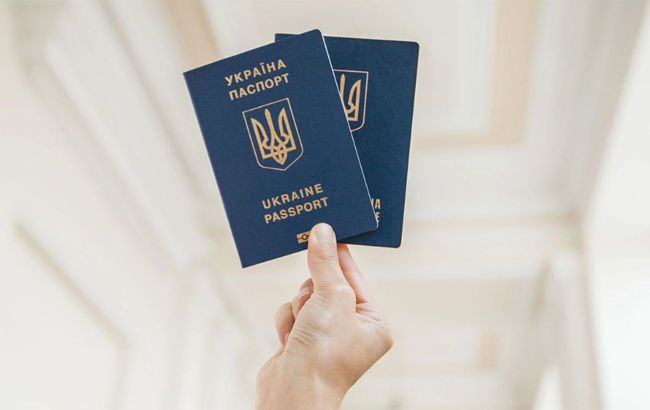Ukraine's citizenship overhaul: Who benefits from updated multiple citizenship law
 Dual citizenship in Ukraine (photo: bank.gov.ua)
Dual citizenship in Ukraine (photo: bank.gov.ua)
On June 18, the Verkhovna Rada of Ukraine passed draft law No. 11469 in its second reading, establishing a legal framework for multiple citizenship. Ukrainian lawyer and senior associate at Expatpro, Kateryna Zatulko, explained the key changes, exceptions, restrictions, and benefits of the new policy.
This is the first time in Ukraine's history that the state has officially recognized the possibility of combining a Ukrainian passport with other countries' citizenship. The law will come into force six months after its official publication (provided the president signs it).
Who can have multiple citizenships
The lawyer explains that the law does not mean automatic second citizenship for everyone. It simply allows for the recognition of multiple citizenships in legally defined cases, such as:
- children who acquire more than one citizenship at birth
- Ukrainian children adopted by foreigners
- Ukrainian citizens who automatically obtain another citizenship through marriage
- cases where Ukrainians automatically receive a foreign passport without applying
- foreigners from "friendly" countries (a list to be defined by the Cabinet of Ministers) who obtain Ukrainian citizenship under a simplified procedure
- Ukrainians who acquire citizenship of such "friendly" countries
Restrictions and exceptions
The law does not apply to citizens of aggressor states (including Russia and Belarus). Multiple citizenship is also prohibited for:
- civil servants and judges (as per current laws)
- individuals who voluntarily acquired the citizenship of an aggressor state or any country not on the Cabinet's list
- individuals who fail to pass mandatory exams (language, Constitution, history) within three years after receiving citizenship
- individuals who served in the armed forces of an aggressor or occupying state
What changes for foreigners
To obtain Ukrainian citizenship under the simplified procedure, foreigners from "friendly" countries will no longer need to renounce their existing citizenship — but this only applies to countries on the government's list (likely EU countries and those that imposed sanctions on Russia).
At the same time, the process becomes more complicated for other foreigners seeking Ukrainian citizenship:
- they must reside in Ukraine for five years with a temporary residence permit
- then obtain a permanent permit and live for another five years
- only after that can they apply for citizenship
Exceptions remain for those with national merit, those who served in the Ukrainian Armed Forces, were married to a Ukrainian citizen for over three years, or had the status of a foreign Ukrainian.
The law also creates a mechanism for restoring citizenship to members of the Ukrainian diaspora who lost it through emigration. This opens a path to reconnect with millions of Ukrainians worldwide.
Other key points
The Constitution of Ukraine remains unchanged: the principle of "single citizenship" still stands. How this will combine with the new law is to be determined by the Constitutional Court, which is currently not operating at full capacity.
The law does not affect other areas such as taxation, social security, military service, or voting rights — those remain governed by current legislation.
The list of "friendly countries" and detailed procedures will be defined in subsequent regulations.
What it means for the country
The law on multiple citizenship is an important signal to the diaspora, Ukraine's international partners, and people in complicated legal situations. It acknowledges reality: tens of thousands of Ukrainians already hold foreign passports.
It is also an opportunity to strengthen ties with professionals abroad, ease their return home, encourage investment, and build global partnerships. However, implementing the new rules depends on political will and effective regulatory follow-up.
Earlier, the Verkhovna Rada passed the law on multiple citizenship, allowing Ukrainians to hold a second passport, with limitations. Speaker of Parliament Ruslan Stefanchuk noted that the law aims to preserve connections with the diaspora, align with European standards, address demographic challenges, and attract investment.

